Afghanistan under Taliban: Concerns over its security implications
By Shavini De Silva
The Taliban emerged in 1994 to enforce a puritanical Islamic order and culture on Afghanistan. According to an estimate in 2018 by U.S and Afghan Nationals; the Taliban had at least 60,000 fighters. Due to massive numbers, the Taliban managed to remain a credible fighting force with the ability to win and hold territory.
The Taliban is reputed to have operated as a subversive force. Its attempts to expel NATO forces from Afghanistan and topple the democratically elected Afghan government could be cited as examples of its insurgency.
Years and months before the Fall of Kabul, most of the Western forces began to withdraw from Afghanistan and this weakened the hold of the government immensely and prompted the Taliban forces to take over. Early this month, the Taliban officially announced the appointments of a new government. The newly appointed government is strictly male with many positions filled with veterans from the hardline movement in the nineties. The Taliban initially claimed that it would take a moderate approach in ruling the country and that women would be allowed to have roles within Islamic laws.
However, this was put to question when the Taliban have intensified a search for those who worked for US and NATO forces. The Taliban threatened to kill or arrest the family members of people who worked with US and British forces if they cannot find them, contradicting their assurances that they would not carry out reprisal killings. Furthermore, the Taliban has violently responded to women who took part in the recent protests against the Taliban government.
It was against this backdrop, the Regional Centre for Strategic Studies held a webinar on the theme Security Implications of Recent Development in Afghanistan in South Asia. The purpose of this discourse was to generate a dialogue to identify the overall security implications that is likely to trigger after the Taliban takeover in Afghanistan. The webinar was graced by four world-renowned scholars/social activists in South Asia. The distinguished panelists consisted of Prof. Shanthie Mariet D’Souza, the Founding Professor at Kautaliya School of Public Policy, Hyderbad, India, Prof. Rasul Bakhs Rais, Professor of Political Science, Lahore University of Management Sciences, Lahore, Pakistan, Prof. Deepika. N. Udagama, Professor of Law, University of Peradeniya, Former Chair, Human Rights Commission of Sri Lankan, the Discussant was Prof. D. Suba Chandran, Dean, National Institute of Advanced Studies, Banglore, India and Professor Keerawella, Executive Director of the Regional Centre for Strategic Studies that moderated the panel discussion.
The role of the International Committee was the key highlight of Prof. Shanthie’s presentation. She drew attention to the fact that the Afghan government failed despite the continuous support provided by the U.S forces in terms of capital and man-power. She stated that though the U.S officials and International Committee were involved in military and economic development; they didn’t have a clear vision on what they wanted to achieve. The democratic approach was very useful to Afghans but not sustainable for the fundamental phases that the international committee did not invest in institutional building. Though most of the blame were taken by the Afghans in terms of lack of capacity and corruption, the international committee did not build into those mechanisms or any kind of accountability measures needed to have Afghans build transparent representative institutions. This in turn led to a functional problem in state building. Due to inadequate transparency and corruption, the money which was transferred into Afghanistan by the International Committee wasn’t equally distributed in Afghanistan. Most of the rural provinces had lack of access to basic needs. The legitimacy of the state was questioned which led to a lot of people joining the insurgent groups due to lack of opportunities.
There was a clear mismatch of what the Afghan government wanted and what the International Committee did. We were able to witness a few fragile gains in Afghanistan, which still couldn’t be seen as long-term gains. A lot of progress were noticed in the international committee. Women had the liberty to go to work, girls were able to go to school and young people were provided with opportunities. Due to its democratic experiment, Afghanistan seemed to co-exist in a bubble as the country was heavily dependent on the International Committee. Therefore, the opportunities to generate revenue in Afghanistan wasn’t well developed. Though progress was achieved, it couldn’t be sustained or translated into long-term gains. The rise of Taliban has led to a series of concerns. The concerns are the consequences on society, the possible strengthening of linkages with terrorists’ groups and the emphasis of the growing narcotic industry in the country. The concern further depends on how the International Committee will engage with the Taliban.
Prof. Rasul Rais elaborated his emphasis on the origins of Taliban, how they came to power, the implications to the region and the role of the International committee in shaping the future of Afghanistan. When the U.S invaded Afghanistan and toppled the Taliban ruled –Islamic emirate in 2001, Afghanistan was able to rebuild its state with the aid of the United States and the International Committee. However, the biggest problem that arose was that the U.S forces remained in the country for too long which led to a surge of dependency from the Afghan government. In this current context, the question lies whether the Taliban will or not be sensitive to the international arms. The Taliban has been communicating with world leaders, conducting business and entering new ventures over the past twenty years. With the new regime coming into power and pronouncements been made, it is possible for them to identify the importance of legitimacy and recognition. Legitimacy will take place with what the Taliban does in Afghanistan and recognition will be acknowledge whether or not they will accept international grounds. However, their ability on what to deliver also depends on the responses of the International Committee and Regional Countries. The Taliban will remain as who they are, a well-established Islamic Emirate. They are not going to compromise on the fundamentals their ideologies have shaped their struggle for the last 40 years and the Sharia law is going to be implemented. The question lies if the international committee is willing to accept this or how the international committee is going to react to this new establishment.
Prof. Deepika.N Udagama drew focus to the current situation of Afghanistan from the perspectives of Public International Law, Human rights protection and the role of the International committee. In the view point of public international law implications, it can be identified as regime recognition. It is the question of sovereignty whether they are willing to accept diplomatic relations with the Taliban regime. In terms of human rights protection, women are the most panic stricken group compared to other ethnic minorities. Though these concerns are risky, it should be noted that the state of Afghanistan has remained bound by its International human rights obligations. Afghanistan does have a record of ratifications of human rights treaties. Most of these ratifications have been in existence during the 80’s and with the subsequent changes in 2001 with the interim taking over. This shows that most of the human rights treaties have been ratified by the state of Afghanistan and passed along various governments over the years. This ensures that it is not possible for the regime to plead local, cultural and religious particularities.
The other possibility that could be applied practically is the Taliban could renounce its international obligations and acceptance of treaties strictly under the international law. Afghanistan is a member of the United Nations and will continue to devout peremptory form of human rights. It is not possible for the Taliban to get into the act of torture, public executions etc. This also ensures that gender discrimination and racial discrimination is also prohibited by customary international law. The United Nations has also given an opportunity to the Taliban to act according to its promise and to see if it is a reformed Taliban. The UN Security Council issued a resolution which gave an opportunity to the Taliban to prove its legitimacy through its actions. This will be witnessed in the coming years. Furthermore, this proves that the UN’s presence in Afghanistan should continue to exist as it ensures a great source of strength to the country.
Prof. Suba Chandran discussed the session by questioning where Afghanistan will head in the next 10 years based on the current context. It is uncertain if the international committee will continue to vest its interest in Afghanistan and there might be a deficit of international aid coming into Afghanistan. The question of global interest coming into Afghanistan also stands at doubt as the U.S has completely withdrawn its forces from the country. This also confirms that the U.S and the rest of the International Committee lost interest in Afghanistan years ago and it is very unlikely for the U.S to show interests towards Afghan again. Afghanistan appears to be a liability to the U.S and the interest of the U.S relies on other nations such as China. The concern of international law and human rights in Afghanistan will subdue eventually with the lack of interests. The discussion underscored the likely changes that will take place during the new Taliban regime and whether or not the International Committee will eventually revert their interests back into Afghanistan.
-
Still No Comments Posted.



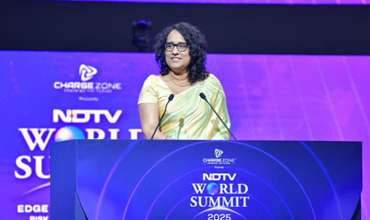
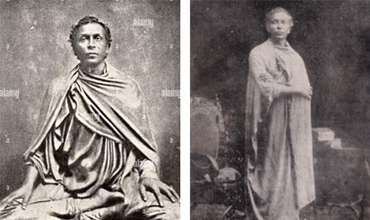
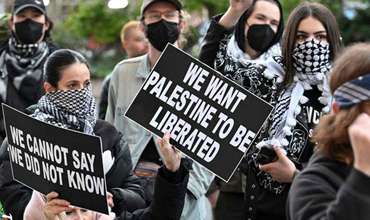



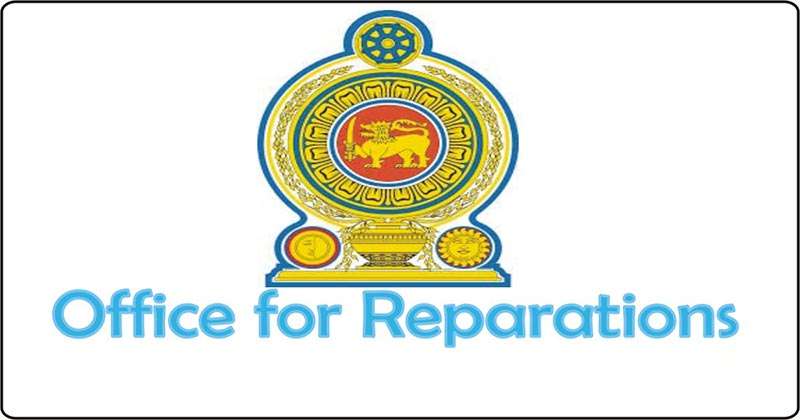
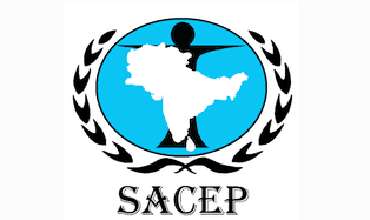

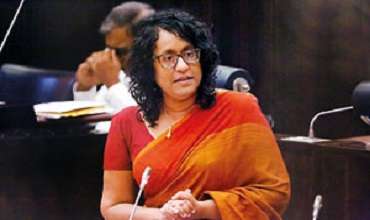
Leave Comments